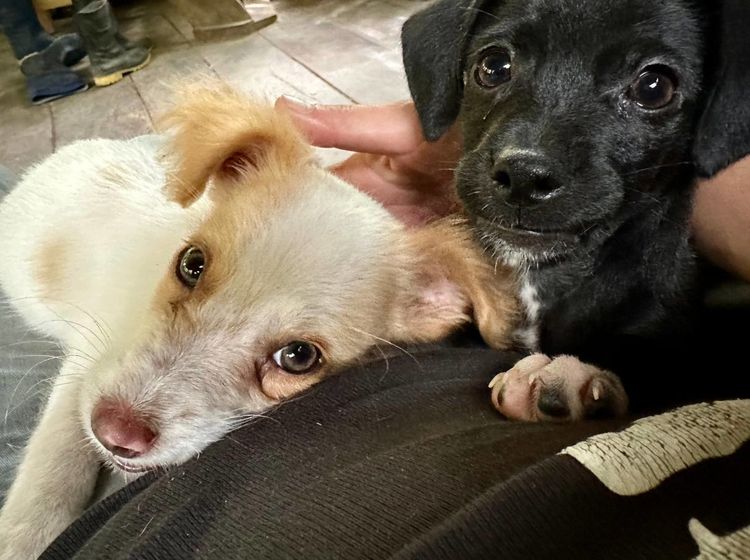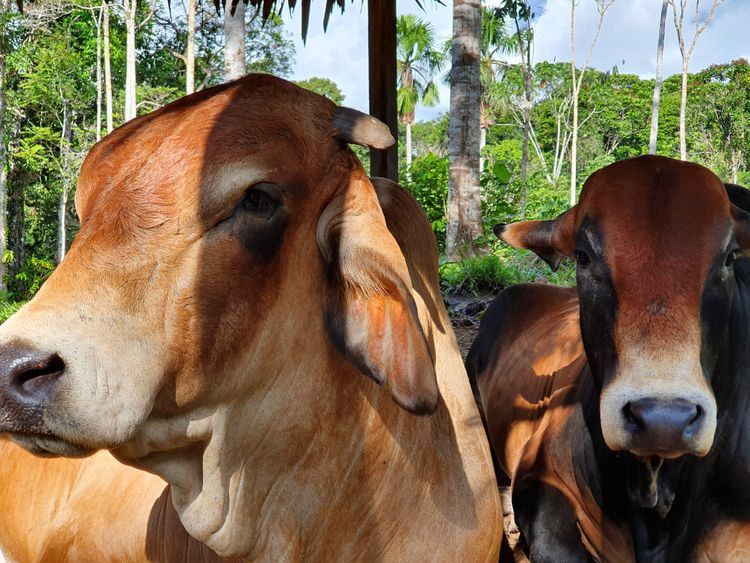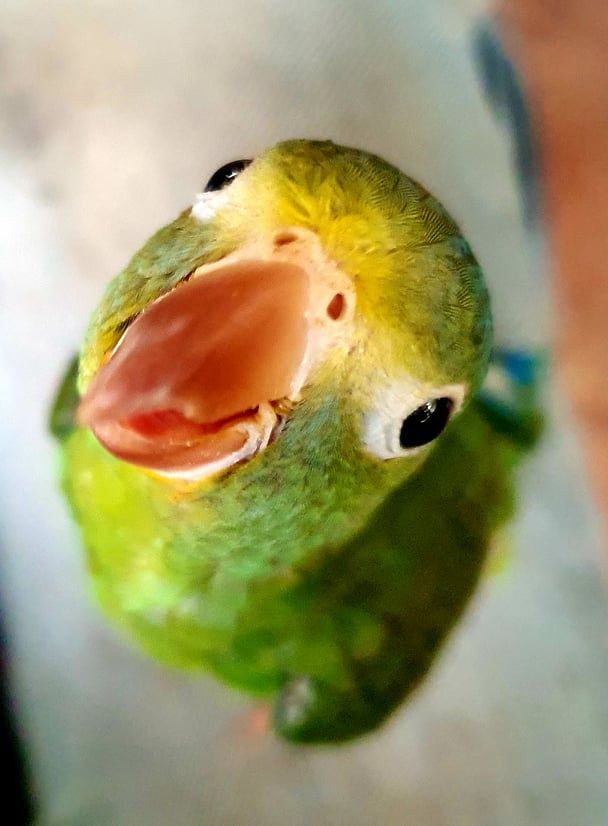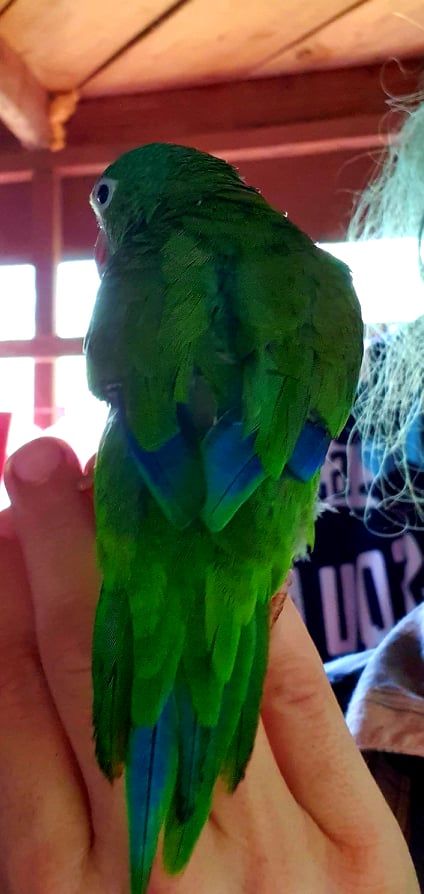"If you don't buy him, I will feed him to a cat"

Once upon a time, a little Cobalt-winged Parakeet got shot with a slingshot and trapped by a local boy on the tiny Momon River in the Peruvian Amazon. He was then taken into captivity in which his wing feathers have been cut off by the boys’ father so he can be a pet. This Parakeet was disabled from escaping back to freedom and returning back to his family and friends.

Days passed by and the boy got fed up with his attention-demanding pet, so his father decided to sell the little Parakeet to foreign people living in the jungle half an hour from the village – meaning us!
That is how we met our Little Biscuit (Keksic) in October 2019, and it was love at the first sight! Even before the father explained the situation we knew why he was here. The father said that if we don’t buy him, he will feed it to a cat. Little Biscuit was already hiding in the hair of our NGO member as a deal was struck. We explained to the father that in the future we are not going to buy any more animals from him, so as not to encourage him to purposely go on capturing animals just to sell it to the NGO. We did try to explain why it is important to let Parakeets be as they are meant to be – free. But due to the pervading mentality present in our region – jungle and all its beings are here to be used, exploited, cut down, sold, or used for amusement or gain – our words didn’t seem to impact the father.
Little Biscuit is a Cobalt-winged Parakeet, or cielo piwicho as they call them in our area. Cobalt-winged Parakeets are the most common Parakeets and are found in humid forests and other semi-wooded areas of the lower tropical zone in Brazil, Ecuador, Peru, Columbia, and Bolivia. These birds are often found in flocks of 10 or more, feeding in the canopy or at forest edges. Among other things, they feed on seeds and fruits and are important as they spread them. They also feed on the nectar of flowers and have a role in pollinating plants. Part of their diet includes insects and their larvae so they play an important role in keeping the insect population in balance.
Speaking of feeding habits, our Little Biscuit is a pretty messy eater, and he loves fruits, especially papaya and bananas. He is a fanatic about chia seeds and kiwicha and is a compulsive cleaner of human nails, hair, and earrings.
Little Biscuit loves nothing more than others’ company and physical closeness and he is so eager to fly again that he keeps practicing his wings – flapping vigorously every time he sits on someone’s finger. So as we wait for his wing feathers to grow, and it will take six or more months for that to happen, we are getting to know each other better.

Little Biscuit is a very fascinating creature. Though he was so much hurt by humans, he has so much love for them despite it and we never saw any sign of retaliation. He is very intelligent and very, very emotional. Just like any cielo piwicho, he loves when it rains and it makes him talk and sing a million miles per hour and do all sorts of acrobatics. This attracts attention from the village younger generations, which we use to educate them about Parakeets, their role in the jungle and the fact that every creature, big or small, has this deep desire to live its life free, happy and with its own kind.
The Story of our Little Biscuit reflects the story of the jungle. He was violated, taken away from his family, used for personal entertainment and gain, and possibly damaged for good – if all of his wing feathers don’t grow back again. But just like the jungle, Little Biscuit has no wish to gain revenge, and still loves people and gives them his unconditional attention and love. The jungle, on the other side, despite all that human beings have done to her, still has the grace to provide and care for all its creatures, including humans. The question remains – until when? The answer is – until its last ”breath”.
The time has come for us, human beings, to finally realize and understand the impact of our everyday actions on the world and take responsibility for them. We need to stop waiting for somebody else to take care of it, waiting for the government, elected officials, public legislate or major crises to deal with it. We need to be proactive, not reactive, we need to be the change we want to see in the world. And it happens right NOW!





Member discussion